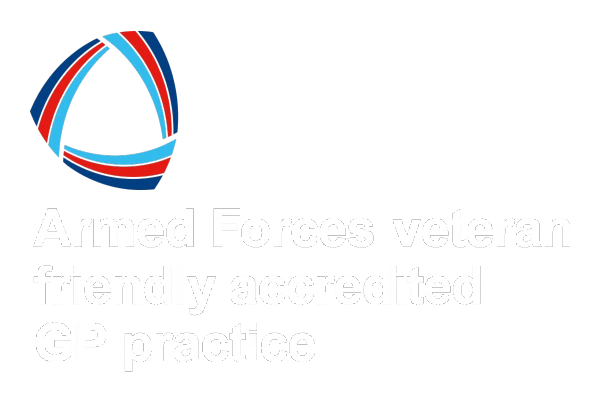We use cookies to help provide you with the best possible online experience.
By using this site, you agree that we may store and access cookies on your device. Cookie policy.
Cookie settings.
Functional Cookies
Functional Cookies are enabled by default at all times so that we can save your preferences for cookie settings and ensure site works and delivers best experience.
3rd Party Cookies
This website uses Google Analytics to collect anonymous information such as the number of visitors to the site, and the most popular pages.
Keeping this cookie enabled helps us to improve our website.
Access to Health Records
This privacy notice explains why Amersham Vale Practice collects information about you, how we keep it safe and confidential and how that information may be used.
We collect and hold data for the sole purpose of providing healthcare services to our patients. In carrying out this role we may collect information about you which helps us respond to your queries or secure specialist services. We may keep your information in written form and/or in digital form. The records may include basic details about you, such as your name and address. They may also contain more sensitive information about your health and information such as outcomes of needs assessments.

We maintain our duty of confidentiality to you always. We will only ever use or pass on information about you if others involved in your care have a genuine need for it. We will not disclose your information to any third party without your permission unless there are exceptional circumstances (i.e. life or death situations), or where the law requires information to be passed on.
Confidential patient data will be shared within the health care team at the practice, including GPs, nursing staff, admin staff and receptionists, and with other health care professionals to whom a patient is referred. Those individuals have a professional and contractual duty of confidentiality.
A number of data sharing schemes are active locally, enabling healthcare professionals outside of the surgery to view information from your GP record, with your explicit consent, should that need arise.
We are sometimes legally obliged to disclose information about patients to relevant authorities. In these circumstances the minimum identifiable information that is essential to serve that legal purpose will be disclosed.
Amersham Vale Practice sometimes undertakes accredited research projects. Where this involves accessing identifiable patient information, we will only do so with the explicit consent of the individual and Research Ethics Committee approval.
You have the right to object to (or opt-out of) ways by which your information is shared, both for direct medical care purposes (such as the national NHS data sharing schemes), i.e. primary uses of your information, or for purposes other than your direct medical care – so called secondary uses.
You have the right to access your own GP record and to have any factual inaccuracies corrected. Details of how to do this can be found on our web site or in our “Privacy Information Leaflet” booklet in the surgery
For more information about how your data can be used click here
Disputes Concerning Content of Records
Once access to records has been granted, patients or their proxy may dispute their accuracy or lack understanding of medical codes.
Patients or their proxy may notice and point out errors in their record, unexpected third-party references and entries they object to or want deleted. The right of rectification and erasure is established within the UK GDPR.
In the first instance that a patient wishes to raise a dispute about their medical record; the patient must submit it in writing to the practice, marking for attention of the practice manager.
Any queries will be directed to the practice who will contact the patient. They will investigate swiftly and thoroughly to identify the source and extent of the problem. This process can take up to 6 weeks.
The responsible clinician and Caldicott Guardian/data controller will then decide on the most appropriate action. Where the dispute concerns a medical entry, the clinician who made the entry should be consulted and consideration given as to whether it is appropriate to change or delete an entry.
Where it is not possible or practical to contact the clinician concerned, the Caldicott Guardian or data controller should be consulted. If it is not possible to amend the records, a meeting with the patient or their proxy should be organised to explain why.
If a patient wishes to apply their UK GDPR rights of:
- Rectification (Article 16 UK GDPR)
- Erasure (Article 17 UK GDPR)
- Restriction of processing (Article 18 UK GDPR)
- Data portability (Article 20 UK GDPR)
- Right to object (Article 21 UK GDPR)
advice must be sought be sought from the organisation’s the Caldicott Guardian or data controller.
Where it is not appropriate to amend a medical record, an entry may be made declaring that the patient disagrees with the entry. If the patient further disputes the accuracy once a decision has been made, they will be referred to the complaint’s procedure and/or the Health Ombudsmen.
Read our Access to Medical Records / Dispute Contents of Record Policy



